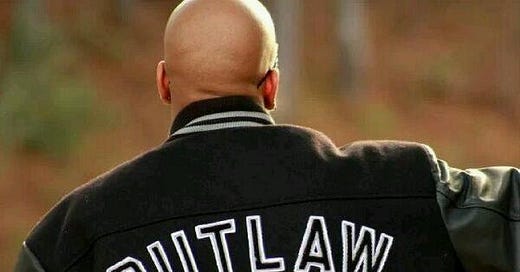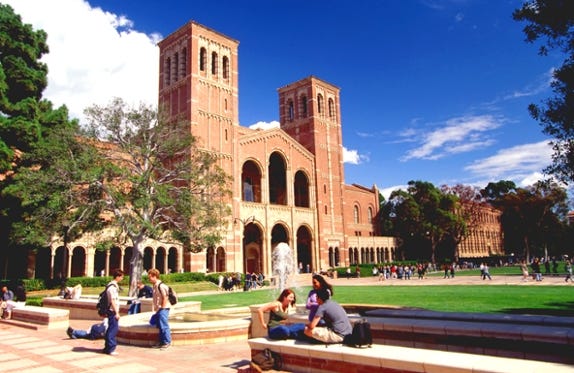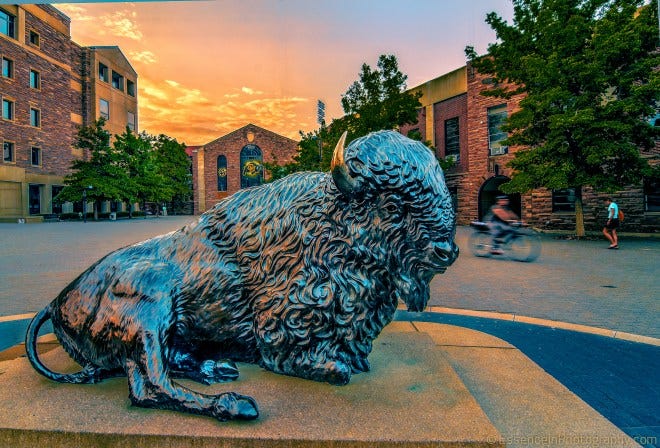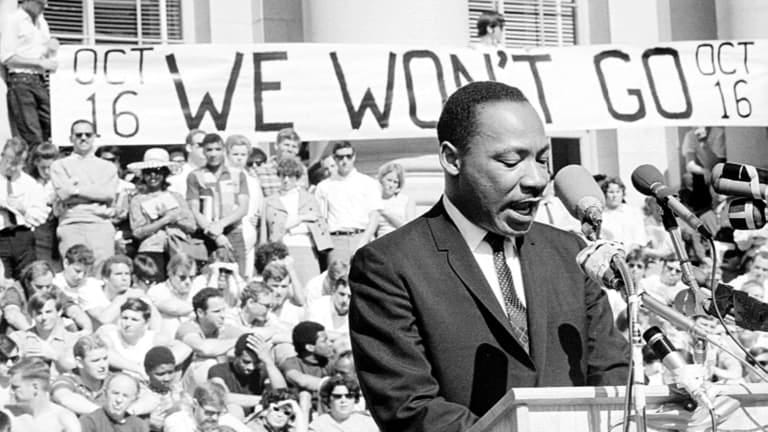Outlaw Universities
Discrimination in Academia
Probably everyone in the academy knows that affirmative action is widely practiced: racial minorities (except Asians) and women are commonly given preference in hiring and admission decisions at American universities. I would guess, however, that some academics -- and many more non-academics -- are unaware that typical university hiring practices are blatantly illegal. So I'm going to talk about that for a while, in case you find that interesting.
Job advertisements commonly say things like that the university rejects discrimination, supports equal employment opportunity, and considers all applicants "without regard to" race, sex, religion, etc. What they actually mean by this is that they only discriminate in certain specific ways. E.g., they don't discriminate against blacks or Hispanics, but only against whites and Asians. They don't discriminate against women, only against men. And so on. (This sounds to me like a rather Orwellian use of "equal opportunity". But what do I know? I'm just some crazy libertarian philosopher.)
I think pretty much everyone in the academic subculture knows this. I don't know if this is widely known outside academia, though.
Here are a couple of examples:
Example 1: the University of California
This was in the news recently. The University of California, in 8 of its 10 campuses, requires all job applicants to submit a "diversity statement" explaining how they will add to the "diversity" of the faculty. You can read about it on the UCLA site: http://ucla.app.box.com/v/edi-statement-faqs
Great -- they want diverse viewpoints! Maybe they're finally going to add some differing ideological perspectives to the chorus of left-leaning professors, right?
Well, if you think that, I have some bridges to sell you. The requirement is obviously designed to help exclude whites, men, and non-leftists. Here, you can read about some of the results achieved at UC Berkeley: https://ofew.berkeley.edu/sites/default/files/life_sciences_inititatve.year_end_report_summary.pdf. Here are a couple of tables from that report:
That's from two searches they did. They're so proud of what they've done that they posted that publicly. Can anyone doubt that their aim is to increase women and racial minorities?
Now, as I say, every professor already knows the score. You know that if you apply to UC, and you belong to a minority, you should talk about that in your "diversity statement". You know that the hiring committee wants to ask you your race and gender, but they can't legally do this, so they put in the "diversity statement" requirement as a proxy. If you want the job, you'll play ball.
Example 2: The Other UC
We have a more limited version of the idea at my own school: https://www.colorado.edu/postdoctoralaffairs/current-postdocs/chancellors-postdoctoral-fellowship-diversity-program
Those are special post-doctoral fellowships earmarked for candidates who "contribute to diversity". The successful candidates are meant to become regular tenure-track professors at the end of the fellowship. The candidates, again, have to submit a diversity statement. And again, the university does not explicitly ask you about your race or gender (since that would be illegal), nor do they explicitly say that they are going to exclude white men. But everyone knows the score.
The Relevant Law
Now, what is remarkable about all this? Why do I claim it is illegal?
The Civil Rights Act
Here is one relevant law, with which anyone who makes hiring decisions ought to be familiar: it's called the Civil Rights Act of 1964. Here are some pertinent quotations (Title VII):
“It shall be an unlawful employment practice for an employer - (1) to fail or refuse to hire or to discharge any individual, or otherwise to discriminate against any individual with respect to his compensation, terms, conditions, or privileges of employment, because of such individual's race, color, religion, sex, or national origin . . .”
“Notwithstanding any other provision of this subchapter, (1) it shall not be an unlawful employment practice for an employer to hire and employ employees . . . on the basis of his religion, sex, or national origin in those certain instances where religion, sex, or national origin is a bona fide occupational qualification reasonably necessary to the normal operation of that particular business or enterprise . . .”
Notice some things about this:
It doesn't say that it's illegal to discriminate against women; it says that it is illegal to discriminate on the basis of sex. It doesn't say it's illegal to discriminate against blacks; it says it's illegal to discriminate on the basis of race. There is no asymmetry drawn between the genders, nor between races. It doesn't make any distinction between the majority and the minority, or between historically privileged and historically disadvantaged groups, or anything like that. So there is just no legal basis for saying that it would be okay to discriminate in one direction but not the other.
The second paragraph quoted above makes an exception: you can discriminate on the basis of religion, sex, or national origin, if one of those things is a genuine qualification for the job.
Notice what is conspicuously absent from that exception: the text pointedly does not mention race or color in stating the exception. That means the exception does not apply to race and color. Meaning that it remains illegal to discriminate based on race even if a person's race is a genuine job qualification. This rules out claiming that minority professors will do better at teaching, or in some other way be more suited to the job.
You also can't claim that excluding white men doesn't count as "discrimination" (say, because it's only possible to "discriminate against" minorities). Besides that that's factually false, the first clause prohibits "failing or refusing to hire" a person because of their race, etc. There is no way that these universities can deny that they have "failed to hire" certain people for particular positions because of those people's race and sex.
This really is not ambiguous at all. The racial preferences are just clearly completely illegal.
It's ironic that this law -- one of the great triumphs of the Civil Rights Movement of the 1960's -- is precisely the one that modern-day leftists, who fancy themselves heirs to that movement, are most at odds with. This indicates how far that movement has strayed from its founding ideals.
Proposition 209
The policies are extra-illegal in California, because, in addition to the Civil Rights Act, California has a law called Proposition 209, which was passed directly by the voters in 1996. This law was specifically written to exclude affirmative action, and it specifically mentions the University of California:
"The state shall not discriminate against, or grant preferential treatment to, any individual or group on the basis of race, sex, color, ethnicity, or national origin in the operation of public employment, public education, or public contracting. ... Nothing in this section shall be interpreted as prohibiting bona fide qualifications based on sex which are reasonably necessary to the normal operation of public employment, public education, or public contracting. ... '[S]tate' shall include, but not necessarily be limited to, the state itself, any city, county, city and county, public university system, including the University of California ..."
It is crystal clear that this was supposed to prohibit exactly what UC is presently doing.
Note again that an exception is made for cases in which sex is a genuine occupational qualification, with no parallel exception made for race. So racial discrimination is illegal no matter what.
So What?
Why draw attention to all this? One reason is that I think this kind of discrimination is wrong, counterproductive, and bad for society. I'm not going to discuss that in detail, though, both because it's too large of an issue and because you probably already understand the basic reasons why someone would think that.
I think it's particularly wrong for the government to discriminate in these ways, and this discrimination is indeed going on at government schools.
Also, I think this points up the left-wing bias of universities. The faith in affirmative action is not shared by most of the public, but academics are so strongly and so uniformly in favor of it, that universities across the country are happy to explicitly defy the law. They don't care if everyone knows they're doing it. They don't care if they're opening themselves up to lawsuits.
The few people in the academy who don't share this ideological commitment are thus put in a difficult position, if they should happen to get on a hiring committee. They'll be expected to implement the university's policy of discrimination. They may be morally opposed to this policy, and they may in any case not be happy to break the law in service of the 'identity politics' ideology.
How Are We Getting Away with This?
How has academia's commitment to race and gender discrimination survived so long, so openly? (It has to be said that the "diversity statement" is a paper-thin disguise. Nor have we made any very serious effort to conceal our discrimination for the past few decades.)
I wonder why the system hasn't been undermined by the simple measure of people lying about their race. Why don't half the college applicants just claim to be black on their applications? Don't they know that that would greatly enhance their chances of getting in? Don't they know that there is no verification of race other than the applicant's own self-identification?
I also wonder why the federal EEOC (Equal Employment Opportunity Commission) hasn't enforced the law against all the universities across the country that are openly thumbing their noses at it.
Here's my hypothesis: the EEOC is staffed by leftists. You don't join an agency like that because you're concerned about discrimination against white men. You join it because you're concerned about women and minorities, and you're hoping to have the chance to slap down some employers who are discriminating against them.
It does not matter what the law says. It matters what the people who are supposed to enforce the law want and believe. If those people are in favor of specific forms of discrimination, then they're going to look the other way, no matter that the law prohibits it.
I think this is the sort of thing that's supposed to be ruled out by "the principle of the Rule of Law". But it isn't -- or rather, we simply don't have the rule of law. Everyone believes in the Rule of Law for the laws that they agree with. Many also believe in it for laws that they don't care about -- like laws that only hurt other people. But very few people actually support the Rule of Law for laws that disagree with their ideology.
You might think the law would be enforced through the courts. Why aren't there dozens of people suing universities across the country?
I think the answer is that it is very difficult to prove harmful discrimination. To win a lawsuit, as far as I understand it, you would have to prove that a specific university passed you over because of your race, color, sex, national origin, or religion. To prove that, you would have to show that you specifically would have been hired if not for the university's affirmative action program. It's not enough that the university is showing preference for some races over others in general. You don't have standing to sue unless you personally were harmed.
But there's no way to prove that. When universities have hundreds of applicants for any given job, including dozens who are highly qualified, it's going to be impossible to establish a probability that a specific person would have been hired by a race-blind process. The left-wing professors from the hiring committee are of course not going to admit to a court that they excluded a candidate for being white. They're going to make up some other reason, which will be impossible to disprove. And so it goes.
One lesson for policy-makers: a law that there's no way of enforcing is pointless. Prohibiting behavior that can't be proved is pointless.









